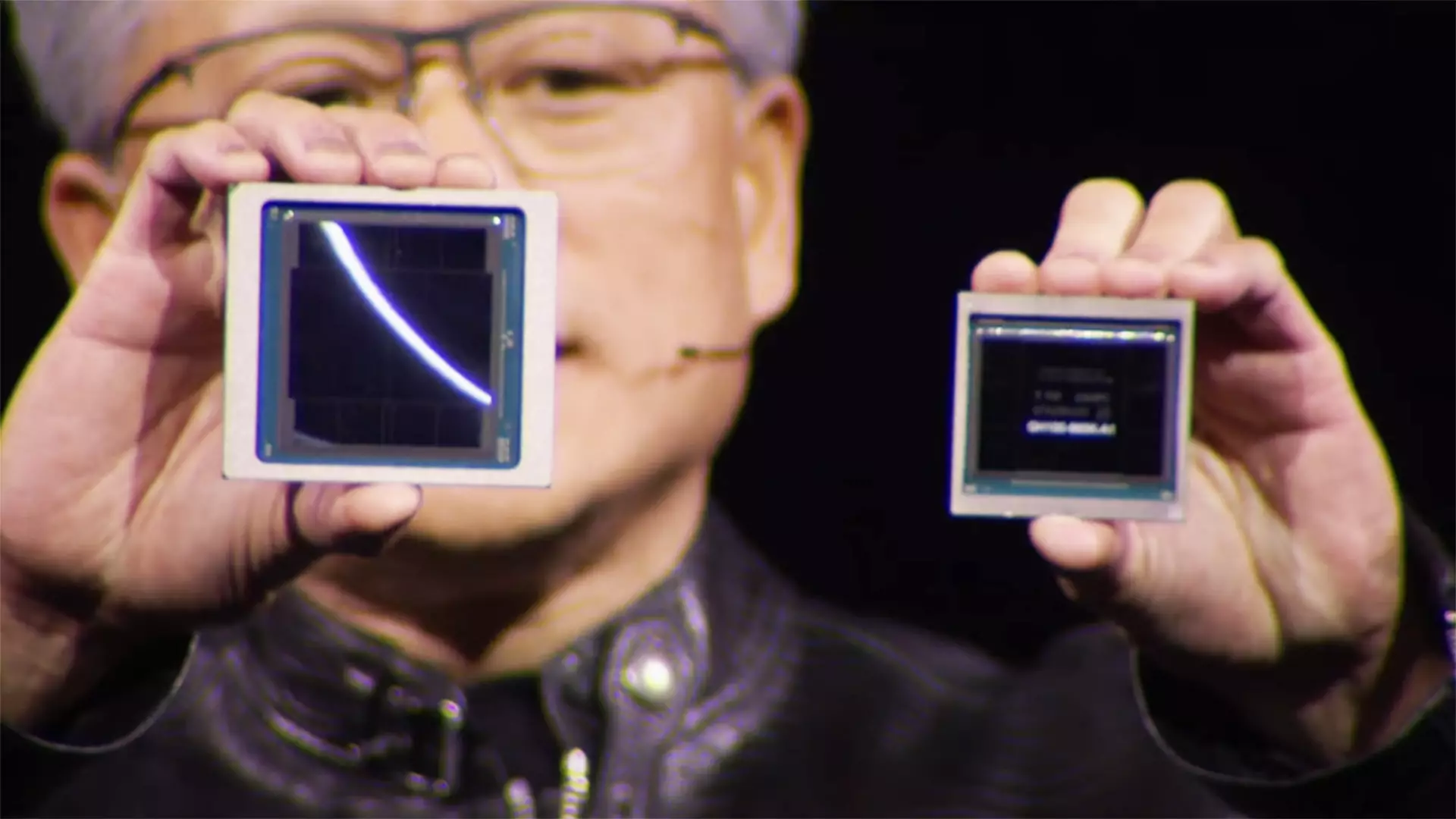In today’s rapidly evolving technological landscape, the relevance of artificial intelligence (AI) and its hardware has escalated into the realm of national security. This revelation brings a dramatic twist reminiscent of a spy thriller, as tech companies like Nvidia find themselves at the center of a geopolitical showdown. The implications of AI chip technologies extend beyond mere innovation; they pose significant concerns about national and global stability, particularly in the ongoing race between the United States and China. A recent proposal put forth by Democrat Representative Bill Foster has amplified these concerns, suggesting a robust system for tracking and even disabling AI chips based on their geographical location.
The crux of this proposed legislation lies in the surveillance of Nvidia’s advanced AI chips post-production. If passed, it could enable government authorities to maintain a substantial oversight of where these chips are dispatched, potentially preventing them from operating if they are traced to countries deemed as adversaries, primarily China. This isn’t just theoretical; experts cited by Reuters indicate that the foundational technology for such tracking persists and is already integrated within Nvidia’s current hardware. This ability to monitor the chips is bundled with the essential step of safeguarding US technological advantages on a global stage.
Export Controls: A Tectonic Shift in Technological Diplomacy
The concern around AI chips is entwined with export controls that the US government has selectively instituted over the past few years. In 2022, the US imposed stringent restrictions aimed at curtailing the transfer of powerful technologies to China, sparking intense debate about the balance between innovation and security. The restrictions are intricately designed, categorizing countries into tiers based on their access to American technology. This segmentation of technological diplomacy has profound implications; it aims to maintain a competitive edge over China, which is rapidly advancing in the realm of AI.
However, the nuances of this legislative landscape are contentious. Reports detail that these measures could siphon profits from Nvidia, predicting a staggering $5.5 billion hit in their upcoming quarterly results due to chip licensing restrictions. Such financial repercussions underscore a crucial conflict: the tightening of technological controls could inadvertently stifle the very innovation that the US seeks to protect. Yet, as economic concerns loom, many lawmakers assert that preventing China from acquiring advanced technology is paramount for national security, even at a significant cost to American companies.
Secrets and Smuggling: The Dark Side of Technology
Nvidia’s assertions that claims surrounding China’s sneaky acquisition of sophisticated chips are exaggerated, seem to clash with emerging evidence suggesting otherwise. Reports about malfunctioning chips discovered in Huawei devices reflect a troubling reality—a sizable financial loss incurred by industry giants like TSMC reveals the dire consequences of unauthorized chip access. As evidence mounts, the warfare of innovation is underscored by instances of espionage and technological theft, prompting US legislators to outline more stringent measures. Yet, the efficacy of such legislation in preventing technological espionage remains suspect.
The proposed tracking mechanisms serve as a potential response to this dilemma, offering a solution that could theoretically minimize the risk of chips landing in places where they shouldn’t. However, the feasibility of achieving successful enforcement remains debatable. The idea of remote disablement may spark optimism, but practical challenges abound, raising questions about the capacity of the US government to effectively implement these measures without infringing on privacy rights or inadvertently compromising innocent users.
AI Autonomy: The Future Landscape of Technology
While the US government grapples with the intricacies of policy formation to safeguard AI dominance, China’s relentless pursuit of self-sufficiency in technology illustrates a broader narrative concerning autonomy and modernization. The initiative for China to reduce dependency on US technology presents complex repercussions for both nations. Should China succeed in creating robust AI capabilities independent of US technology, the competitive landscape will shift drastically, potentially relegating the US to a position of vulnerability.
Moreover, Nvidia’s place as a global tech leader seems secure for now, but the repercussions of these geopolitical maneuvers could alter the industry’s dynamics in unforeseeable ways. It is imperative to understand that the country’s adaptability might hinge on the resilience and innovative power of American firms. The pursuit of advanced AI technology is no longer merely an industrial race; it is embroiled in national identity and security. As the landscape shifts, players in this arena must not merely react but actively strategize, fostering a commitment to developing superior technologies that can withstand both scrutiny and competition.
The narrative surrounding AI technologies and national security is multifaceted, intertwining ambition with anxiety. The future of AI may depend on how well nations navigate this intricate balance of technological prowess and geopolitical reality, marking a crucial chapter in the saga of modern innovation.

